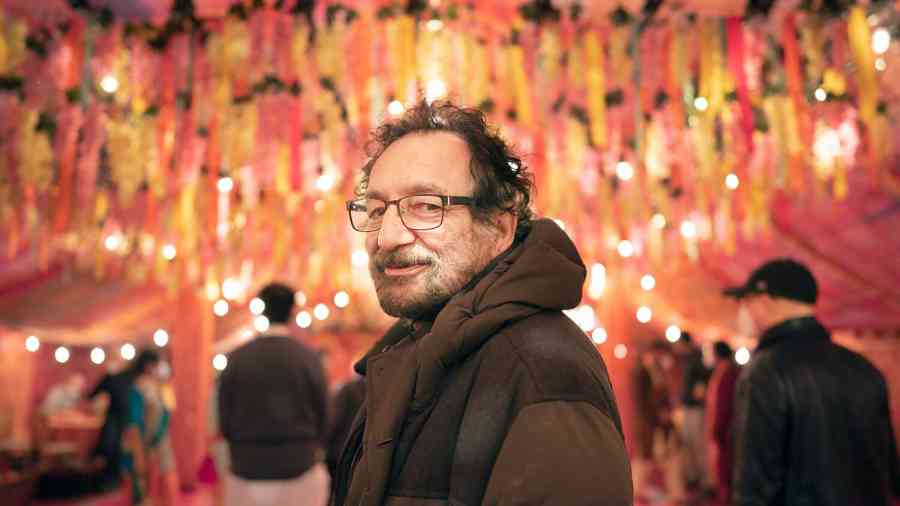Sixteen years after helming his Oscar-winning film Elizabeth: The Golden Age, Shekhar Kapur is back with a feature film. Working out of a script written by Jemima Khan, Kapur directs a cast as diverse and eclectic as Emma Thompson, Shabana Azmi, Lily James, Shazad Latif and Sajal Aly in the romantic comedy What’s Love Got To Do With It? that often overturns the idea of being one.
Kapur, 77, is, of course, no stranger to big Hollywood. His 1998 biographical period drama Elizabeth — which had Cate Blanchett playing Queen Elizabeth I — was nominated for seven Academy Awards that year. Its sequel Elizabeth: The Golden Age came nine years later, also scoring nominations and winning at the Oscars. In between, he directed Heath Ledger and Kate Hudson in The Four Feathers.
Kapur, who was the toast of Hollywood for many years and continues to demand time and attention, has also made quite a few documentaries and short films over the years. In India, he is the man behind films like Masoom, Mr. India and Bandit Queen.
His passion project ‘Paani’ — that depicts the scenario many years into the future, where the earth’s water supply has run out and the events and wars that follow as a result — is a film that has run aground for many years now, but one which he is adamant on making.
Over a long, freewheeling chat with The Telegraph, Kapur spoke about his new film, why he has sleepless nights and why he feels he can’t make a Bandit Queen again.
Now that What’s Love Got to Do with It? has released in most markets, what’s been the most memorable piece of feedback that’s come your way so far?
The most heartwarming feedback, in India especially, has come in from women, even up to the age of 35, who told me, ‘You have told our story’. This is their story, this is what they are going through and it shows the conflict that they are facing....
I am not endorsing any of these apps, but what something like Tinder has done all over the world is that it has allowed women to make a choice. What was probably the first thing to free a lot of women and enable them to express their sexuality was the pill... it freed them from the fear of pregnancy.
And the second thing is dating apps. A woman can now decide who she wants to be with and in what capacity she wants to be with a person — whether it’s to date, marry or have sex with. This is a choice given equally to men and women.
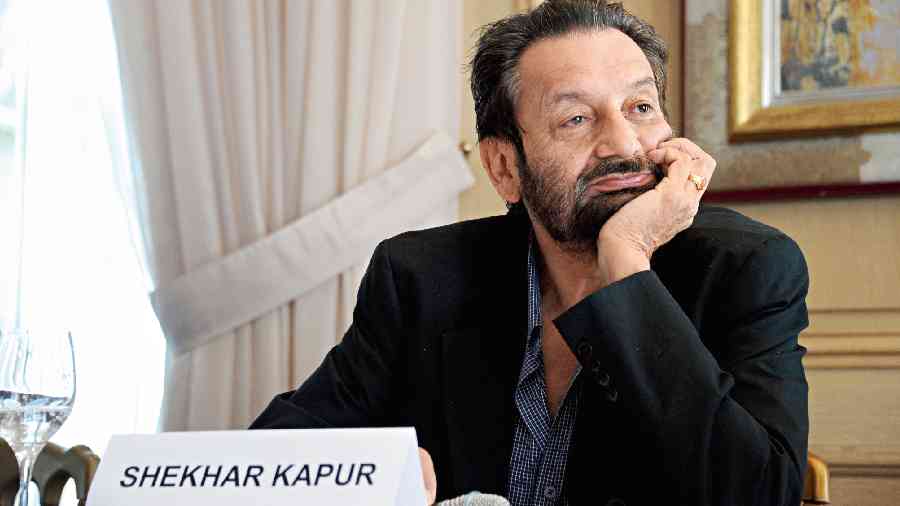
But there is always a fear that’s associated with making your own decision. Having too many choices is also complicated (smiles). Every time I have a film which is successful, I am inundated with scripts. And when your film is not successful, you only have the choice of one and you have to take it (laughs). So what the modern world is doing is giving young people choice. And then the whole idea becomes... do you want to take the choice but not take the responsibility that comes with that choice?
In India, arranged marriage, or ‘assisted marriage’ as my film says, is becoming a memory. But traditionally and historically, marriage has always been a union between two families. But now, each of the two people in a relationship has to carry the burden of the choices they make in that relationship. What was amazing about the film was how so many young people identified completely with Zoe (played by Lily James) and her situation.
What has also worked for this film is that post-Covid, the emphasis on family films and family viewing has gone up. During Covid, we had forgotten about hugging, we had forgotten that love also means forgiveness. These were emotions that came up in this film.
How much does relevance and making films that speak to the audience of today and tell their stories define the writing that you do now?
Whenever I make a film — whether I write it or not — I always have to find its relevance to modern-day audiences. Even when I made Elizabeth (1998), I kept asking myself, ‘Why would a young girl in China or in Tokyo want to see this film?’ With Elizabeth, I was also telling Indira Gandhi’s story. She was made the Prime Minister of India when Lal Bahadur Shastri died, with most saying, ‘Let’s put her on the hot seat for now and we will deal with her later’. And then they figured later that they couldn’t deal with her (laughs). It’s very similar to Elizabeth’s story.
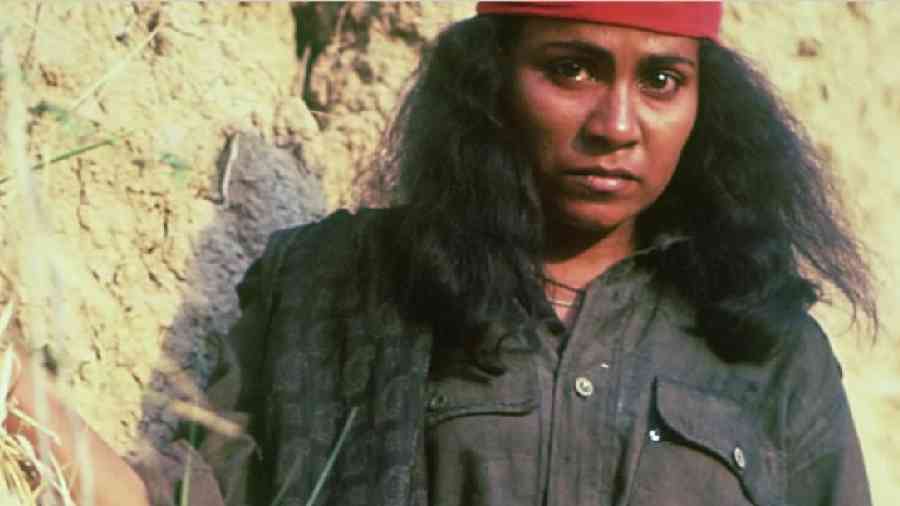
Seema Biswas in Bandit Queen
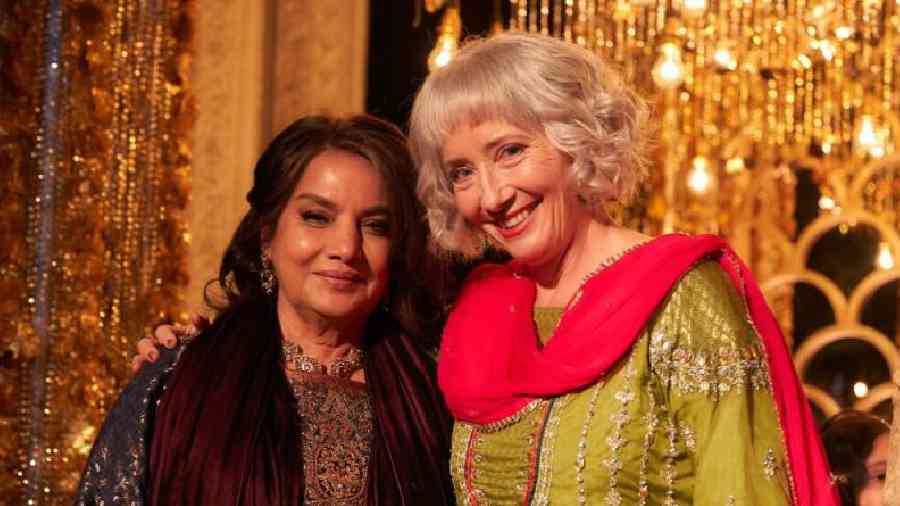
Shabana Azmi and Emma Thompson in What’s Love Got To Do With it? directed by Shekhar Kapur
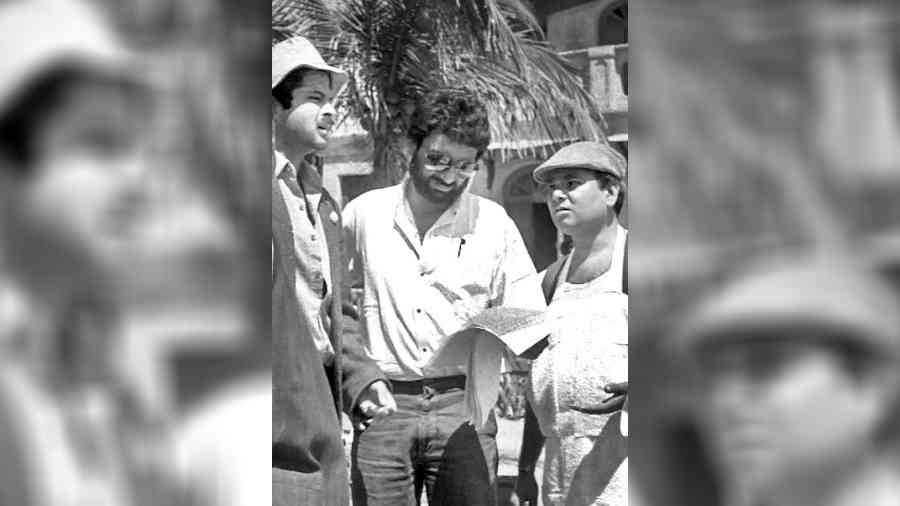
Kapur with Anil Kapoor and Satish Kaushik on the sets of Mr. India
You mentioned how arranged marriage is becoming a thing of the past. But we also have a show like Indian Matchmaking which is a huge hit. How do you explain that?
I have seen that... it’s that one woman (Sima Taparia) who arranges marriages, right? I somehow feel that it partly makes fun of the concept also. It’s also a comedy of sorts (laughs).
But there is nowhere in the world where parents don’t try. Ask a young Jewish boy in New York and he will tell you, ‘Oh my God! My mother is constantly trying to introduce me to girls!’ The same is in China and Japan. Getting married in Italy with an Italian mother constantly telling you what to do is a nightmare! Look at the films My Big Fat Greek Wedding and Crazy Rich Asians. In India, it’s just lasting a little while longer. That’s because almost everyone in India gets married! The conversation around marriage starts when one is 17 or 18.
What was your first reaction when Jemima Khan spoke to you about this script?
I never jump at anything that’s offered to me. I was sent the script by the same company that I made Elizabeth: The Golden Age with, and so at least I knew that the film would get made.
What I loved about this script is though they call it a rom-com, it doesn’t say that things end on the note of ‘happily ever after’. What it does say is that everything is a process.
Love is always a mystery and if the longing or yearning is taken out of love, then love dies. And when they say ‘happily ever after’ in a rom-com, my question is, ‘Please tell me what happened after happily ever after’ (smiles).
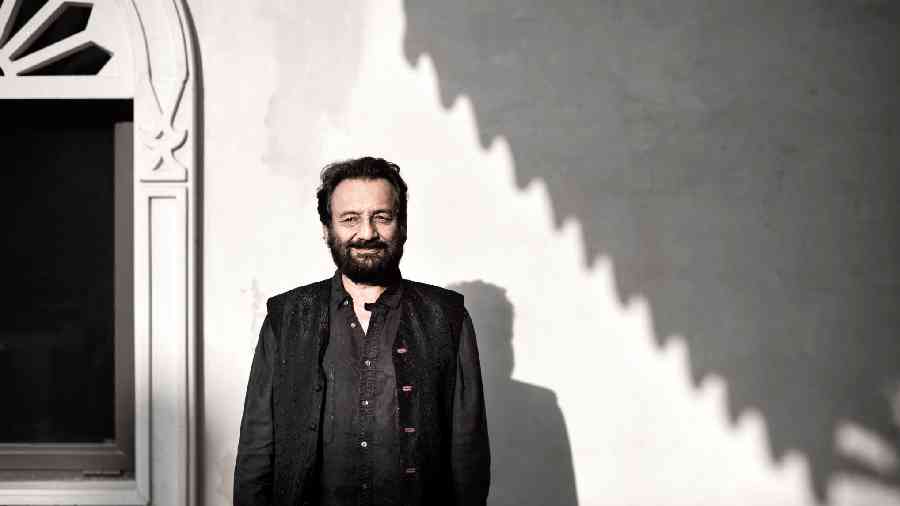
What went into casting actors as diverse as Shabana Azmi and Emma Thompson, Lily James and Shazad Latif in What’s Love Got to Do with It?
Shabana was always my first choice, right from when I read the script. Lily James came on much later, after many long conversations that we had. Emma Thompson said ‘yes’ from the get-go. For everybody else, we had auditions.
I rarely have first choices when it comes to actors. Cate Blanchett (who earned Best Actress Oscar nominations for each of the two Elizabeth films) wasn’t the first choice for Elizabeth. She did an audition. Casting is prime, casting is fundamental to the making of a film. I knew Shabana, having worked with her earlier (in Masoom, Kapur’s directorial debut), I knew of her capability and she was my first choice.
Although you have been making shorts and documentary films in the interim, What’s Love Got to Do with It? comes 16 years after Elizabeth: The Golden Age. What took so long to make a feature film?
Well, I tried making 'Paani' for many years, and that still hasn’t happened. I really wanted to make a film in India and I was very disappointed that Slumdog Millionaire wasn’t called an Indian film, though it was completely shot in the country. With 'Paani', I wanted to show the world what kind of films we can make in India. I could have made it in Spanish and set it in Mexico, which is one of the offers that I had. But I didn’t. If someone had sent me a script which had absolutely caught my fancy then I would have made a film.
A lot of things get thrown at me... I read some, some I don’t read. When I read a script, I keep asking myself what I can bring to it, how do I do it in a way that brings in a very unique point of view... that can only come from who you are as an artiste and as a person. So when I read the script of What’s Love Got to Do with It?, I felt I could do something unique with this film.
Would it be fair to say that the scripts you are offered now, as opposed to a few years ago, are more evolved in terms of storytelling, perspective and worldview?
The best writers are now on streaming platforms and worldwide, some of the best stories are being told on these platforms. But it’s a different medium. Film is a very particular discipline where you have to tell a very big story in a very short space of time. In a novel, a subtext is written. In films, as a director, I have to use framing, music, lights, and choreography in order to make people realise that there is more to this scene than what is being shown.
Does this constant talk of why you haven’t made a feature film in so many years despite making a huge impact in Hollywood faze you?
People think I am zen, but I am not! (Laughs) They have no idea about the chaos inside. In fact, I constantly look back and tell myself that I should have made more films. But all said and done, it’s not easy to make a film. Every film I make wrenches my heart out. That’s how it should be. And as a filmmaker, you have to be sure that you are passionate enough to give everything of yourself to that film.
These days, I can’t sleep at night because now I know that I have to make a film again (smiles). I am in a zen-like state for many things, but not when I am asked about my next film. I am on edge, constantly.
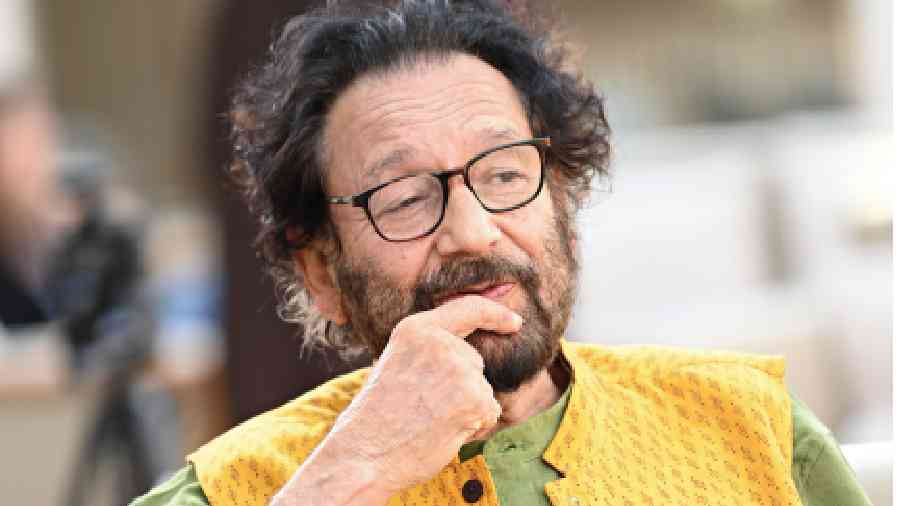
Does the constant chaos in your mind stimulate you creatively?
All structure is anyway imagined and our greatest illusion is that we are in control. I completely thrive in chaos. Every day that I am on set shooting a film, I plan like a general. I am an obsessive planner! (Laughs) But when I get to set, I start telling myself, ‘Today, everyone is going to find out that you are a con man’ (smiles). I do believe that it is when you are in a state of chaos, then the answers come to you at the moment. Everything that is planned is in the moment.
When I am on set, there are 200 people looking at me to make a decision. I may have made that decision 200 times in my head the night before, but on set, it is very different. I push myself into a moment of chaos and then the answers come to me. So now you know why I haven’t made more films... otherwise I would have to be in a state of chaos every day!
When you are making a big film, you are spending half a million to a million dollars of somebody else’s money... every day! So you have to keep up with the illusion that you know exactly what you are doing.
Is there any one film that wrenched your heart out more than the others did?
Bandit Queen (1994). It wrenched everything out of me. I gave everything that I had to that film. Bandit Queen was a very angry film. Renu Saluja, my editor on this film who has passed away, has said famously, ‘Shekhar would come into the editing room (of Bandit Queen), stay for a while and go off into another room and I would hear him shouting’ (smiles). I always felt that how do I judge a cut unless I am in the same position and have the same anger which I did when I shot the film? I needed to go back to that energy, that angst that I had during the shoot to be able to judge whether the film has the same anger that it did.
Will you be able to make a Bandit Queen today?
Two or three years ago, I was asked to write a director’s commentary for the film’s international release and I watched it again. I came out and I started crying. My assistant asked me whether I was crying because I was so moved by the film. I said, ‘No, I am crying because I may never be able to make a film like Bandit Queen again’.
Whatever was happening to Phoolan Devi was only about a few hundred miles away from Delhi, but it felt external to us. Only when I was making Bandit Queen did that feeling become internal to me and I realised that we are all responsible. I feel that as a filmmaker, I have contributed to the way that women are treated. And I went at myself. As a Punjabi boy, I was brought up with the idea ki ladkiyan sharmati hain and that the guy should be the more aggressive one. And then I made Bandit Queen and everything changed. I made an angry film and people walked out angry.
I don’t know if I can find that anger again. There are still a few things left in my life that I am very angry about, so let’s see if I can use that to make a film. Passion is not just hard work, passion is anger too. Passion is when every cell of your body is involved in what you are creating.
What do you have to say about the Indian film-making space now?
There is a lot of good work coming out of India, especially from the OTT platforms. I left India after Bandit Queen and never made a film here after that. That was also brought on by questions directed at the scripts I wrote. Questions like, ‘Achha, maa kahan hain? Hero ki maa toh honi chahiye’. That’s where I got stuck.
But things have changed now. Manoj Bajpayee’s first film was Bandit Queen and look at the amount and the diversity of parts that he gets. That’s how good he is. I like filmmakers like Anubhav Sinha. Content is much better now.
Do you see yourself working in India in the near future?
I want to make ‘Paani’ in India, I have committed to make ‘Paani’ in my country. I will be back in India to make ‘Paani’.
Everyone keeps asking me why don’t I make ‘Mr. India 2’. I can’t make ‘Mr. India 2’. But why can’t another film of that genre be made again? There is a film in that genre that I am in talks for.
Mr. India could have been made into a franchise. It had a universal character. People said it was a superhero film, but it wasn’t. Look at the iconic characters it had... Arun, Mogambo, Calendar, Daga, Teja, Dr Fu Manchu, Miss Hawa Hawai, all the kids....
I am thinking of a film in the same genre in India. I may not direct it, but I will cause it to happen and produce and write it. I want to create a kind of Indian Harry Potter (smiles). Not that story, of course, but the idea of it being for kids and then how it attracts adults too and becomes a franchise ultimately. I want it to have the same sense of joy that Mr. India had. That feeling of, ‘Okay, we are saying it’s serious, but don’t take us seriously’.
I am so surprised that no one has made a film like Mr. India after that in India. The model is so obvious, it will work universally. Even at that time, I wanted (producer) Boney Kapoor to make a Mogambo doll and Mogambo games.
When I would walk down the streets of Bombay after the film released, mothers would come up to me and say, ‘What have you done?! Woh invisibility ka bracelet kahan milta hain? All the kids wanted that!’ (Laughs) And to think that my special effects guy and I made that bracelet in one night sitting in a garage!

